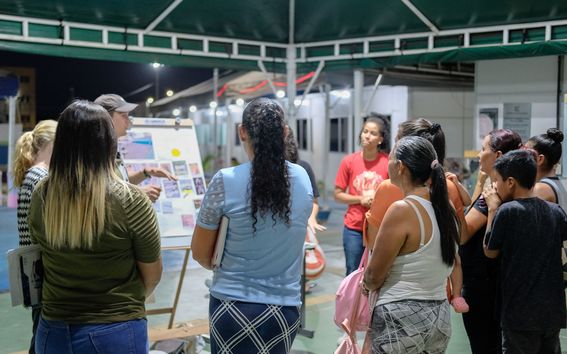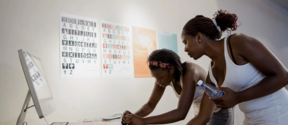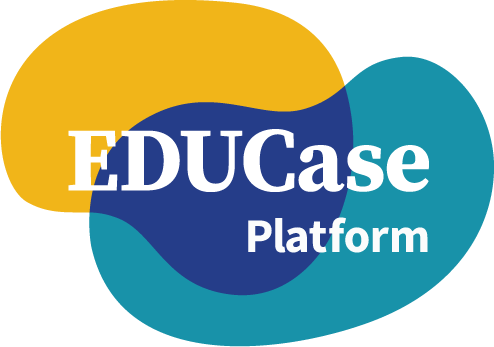Transforming Interdisciplinary Education: Sustainable Global Technologies (SGT) Across Four Continents

Educators continually seek effective methods to teach and support students in a dynamic global context. Aalto University’s Sustainable Global Technologies (SGT) programme strikes a perfect balance, integrating science, research, pedagogy, activism, and internationalization into a cohesive framework. The SGT programme, a pioneer in innovative pedagogy, has further enhanced its impact with support from the EDUCase Platform.
The SGT programme is multidisciplinary, focusing on global development and sustainability applying problem-based learning (PBL) and other transformation-driving education approaches. Students gain a deep conceptual understanding by actively engaging in various lectures, readings, and workshops, while also tackling authentic societal challenges that require both scientific knowledge and stakeholder engagement. These projects range in complexity, challenging students to be self-directed and take ownership of their learning.
Since 2006, SGT students have collaborated with partners from academia, industries, governments, civil society organizations, and communities worldwide to tackle issues in various fields such as urbanization, humanitarian, and sustainable technologies. The SGT FAIR’24 invited visitors to explore these projects through immersive stories and interactive elements, encouraging them to reflect on the impact of their own actions. Riina Subra, the director of the EDUCase Platform, noted that the SGT FAIR’24 highlights Aalto University’s commitment to global education and internationalization. The SGT programme is built on values of ethics, multiculturalism, internationalization, and empathy, fostering a collaborative and inclusive educational environment that prepares students to address global challenges.
Showcasing Student Projects
SGT FAIR’24 featured five student projects from Nepal, Zambia, Lesotho, Brazil, and Mexico, demonstrating the programme's extensive reach and diverse impact:
Nepal Team: with the aim of promoting sustainable food systems in hospitality, the Nepal team collaborated with students from colleges in Lalitpur, including the Asian Institute of Technology and Management (AITM). The objective was to promote discussion and raise awareness of the sustainability issues in the Nepalese hospitality industry, paving the way for constructive solutions and positive change. The team is the recipient of the Solve the SDGs 2024 Hackathon.
Zambia Team: in collaboration with the United Nations Industrial Development Organization (UNIDO) the Zambia team aimed to advance gender equality in employment and explore women’s access to equal employment opportunities within Zambia’s mining and water management sectors, where male dominance has historically restricted female participation.
Lesotho Team: in collaboration with the University of Turku and the National University of Lesotho through the DEPLOY project, the Lesotho team aimed to Enhance Electricity Access and raise awareness of the energy situation in Lesotho. Their project sought to establish cooperation with local universities and students.
Mexico Team: funded by the Finnish National Agency for Education’s TFK Programme, the Mexico team partnered with Action Lab Mexico and Universidad Modelo in Merida to promote the sustainable development of the Mayan community. The team focused on supporting local artisans to promote their handicrafts and increase sales.
Brazil Team: in partnership with the United Nations High Commissioner for Refugees (UNHCR), and part of the Ponto de Encontro project, the team aimed to design an urban garden in Vila Jardim, Boa Vista, Roraima. This project aimed to enhance livelihood, community engagement, and sustainable practices with support from the residing Brazilians and Venezuelan refugees.
According to the students of SGT FAIR’24, “the heart of the SGT programme is the human-centered process”. “We learn to look at problems through the lens of the stakeholders and connect with the needs of the people who will be the beneficiaries”, they said. “This process is people-oriented, driven by empathy, and backed by research, and collaboration”. Matleena Muhonen, the coordinator of the SGT programme, also emphasized the innovative concept of the PBL methodology, stating that SGT educates the next generation of policymakers by engaging graduate students, faculty, and industry practitioners in interdisciplinary, collaborative, and geographically distributed PBL activities. The course re-engineers traditional educational methodologies, bringing together stakeholders from multiple disciplines across borders.
Through its commitment to these principles, the SGT programme continues to transform interdisciplinary education, empowering students to make a tangible impact on the world. By integrating these core values, SGT not only addresses immediate sustainability challenges but also cultivates a generation of empathetic, culturally aware, and ethically minded global citizens.
More information about the SGT programme is available here.
Read more news
Breaking the Darkness: Tackling energy crisis in Lesotho
Lesotho, often called the Kingdom in the Sky due to its high altitude, faces a severe energy crisis, with nearly half of its population lacking access to reliable electricity.
A Global Learning Space: Empowering Students for Responsible Global Engagement
As part of the EDUCase network, the University of Oulu has offered to be the testing ground of a virtual learning initiative that aims to revolutionize virtual learning.
LUT University and Aalto University export virtual education to Africa
Lappeenranta-Lahti University of Technology (LUT) and Aalto University have joined forces to export virtual education to the continent.
